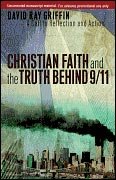What should be the proper relationship between reason and Christian faith? In the third century, Tertullian asked the question, "What does Athens have to do with Jerusalem?" Pope Benedict XVI in a
recent address at the University of Regensburg has answered a resounding, "everything."
This is the same speech in which the pontiff quoted a 14th Century Byzantine emperor speaking negatively about Mohammed. This is the same speech that criticizes violence done in the name of Islam, which at the same time, some Muslims use as a justification for violent acts. (I’ve stopped trying to understand that one.) Unfortunately, Benedict’s main thesis is lost in the violence that has erupted.
Benedict’s argument for the compatibility of reason and revelation is merely the reiteration of many years of Roman Catholic thought. For example, one could argue that Thomas Aquinas’ whole project hinged on making Aristotle compatible to Christian teaching. Benedict argues that the bringing together of the Athens and Jerusalem is Christianity, and Christianity is basically a European religion. Benedict says,
This inner rapprochement between biblical faith and Greek philosophical inquiry was an event of decisive importance not only from the standpoint of the history of religions, but also from that of world history -- it is an event which concerns us even today. Given this convergence, it is not surprising that Christianity, despite its origins and some significant developments in the East, finally took on its historically decisive character in Europe. We can also express this the other way around: This convergence, with the subsequent addition of the Roman heritage, created Europe and remains the foundation of what can rightly be called Europe.
This attitude explains Benedict’s concern about the recovery of Christianity in Western Europe. In his view, Europe is not Europe without the Christian faith. Moreover, it reveals one of Benedict’s fundamental critiques of Islam. To extend Tertullian’s metaphor, Islam has failed to bring Mecca and Athens together. However, the pope’s criticism here of Islam is only illustrative. He is more concerned about keeping Jerusalem and Athens firmly intertwined.
Benedict believes that the Reformation began the de-Hellinization of Christianity. In other words, Reformers divided Jerusalem and Athens. Kant reduced Jerusalem to a ghetto, and Harnack bulldozed much of Jerusalem to make it presentable to the modern Athens. It is not surprising that the head of the Roman Catholic Church would suggest that liberal Protestant theology was the inevitable result of Martin Luther nailing 95 theses on the Wittenberg door. It is also not surprising that I respectfully disagree.
This brings me back to Benedict’s quotes about Islam. He quotes the observations of Theodore Khoury, the editor of the 14th Century dialogue mentioned earlier.
But for Muslim teaching, God is absolutely transcendent. His will is not bound up with any of our categories, even that of rationality. Here Khoury quotes a work of the noted French Islamist R. Arnaldez, who points out that Ibn Hazn went so far as to state that God is not bound even by his own word, and that nothing would oblige him to reveal the truth to us. Were it God's will, we would even have to practice idolatry.
I must admit that when I read this description of Islam, I immediately thought of some Presbyterians that are so enamored with the sovereignty and freedom of God that they forget the incarnation. I am reminded of those Presbyterians who claim that the Holy Spirit would speak in contradiction to Jesus Christ or the Scriptures. Benedict sees this as a failure of reason. I see it as a failure to embrace revelation.
The Reformers were not trying to remove reason from faith. Instead they were trying to keep reason humble. Even our reason is subject to sinfulness and idolatry. By starting with the self-revelation of God in Jesus Christ and the Scriptures, reason is made modest. Its ultimate role is not the discovery of the truth but instead the protection of the truth. Rather than Benedict’s Hellinization, I believe that God’s revelation makes our faith different from the Islam described by Ibn Hazn. That revelation is the corrective moving us away from idolatry, sin, and heresy. Only when we follow Jesus’ words, "abide in me," will the right relationship between faith and reason be established.

